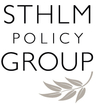Evaluation of Security Risk Management Programme in the Middle East Oct 23
Sthlm Policy Group · Comments: 0The evaluation assessed the relevance, efficiency, effectiveness, impact and sustainability of the SRM programme, using methodologies that allowed the evaluation team to work systematically and with a high degree of objectivity. Moreover the evaluation sought to identify lessons learned and international good practices in relation to Risk Management Systems, that could be adapted to the UNRWA environment.
The scope of the evaluation was to review and provide advice to SSD with particular focus on the overall SRM programme and the relevant components identified in the programme Theory of Change. The evaluation covered all UNRWA HQ and Field Offices for the time period 2011-2014 (Jordan, Lebanon, Syria, West Bank, and Gaza).
SPG led the evaluation activities and directly managed the work of the evaluation team, comprising an Evaluation Expert (Team Leader from SPG), a Security Expert and an Arabic Speaker Community Development Specialist. SPG reported to the Evaluation Division of UNRWA, which provided guidance and quality assurance to the process.
The UNRWA Security Risk Management Programme
The primary responsibility for the security of the United Nations and humanitarian personnel lies firstly with each and every Member State on whose territory these personnel are serving. The United Nations has a duty as an employer to help the Host Government to fulfil these obligations in circumstances where United Nations personnel are working in areas that are subject to conditions of insecurity. UNRWA supports the UN vision to establish and maintain operations in insecure and unstable environments, by adopting the operating principle of “how to stay” as opposed to “when to leave.” To enable that principle the UN Security Management System (UNSMS) requires all organizations within the United Nations to maintain a robust and cohesive internal security management system and adhere to three principles: determination of acceptable risk; provision of adequate and sustainable resources to manage the risk to personnel and their eligible dependents, premises and assets; and development and implementation of security policies and procedures. Within the UNSMS context and accountabilities UNRWA has a unique challenge to provide safety and security to an estimated 30,000 personnel across the region.

Comments: 0